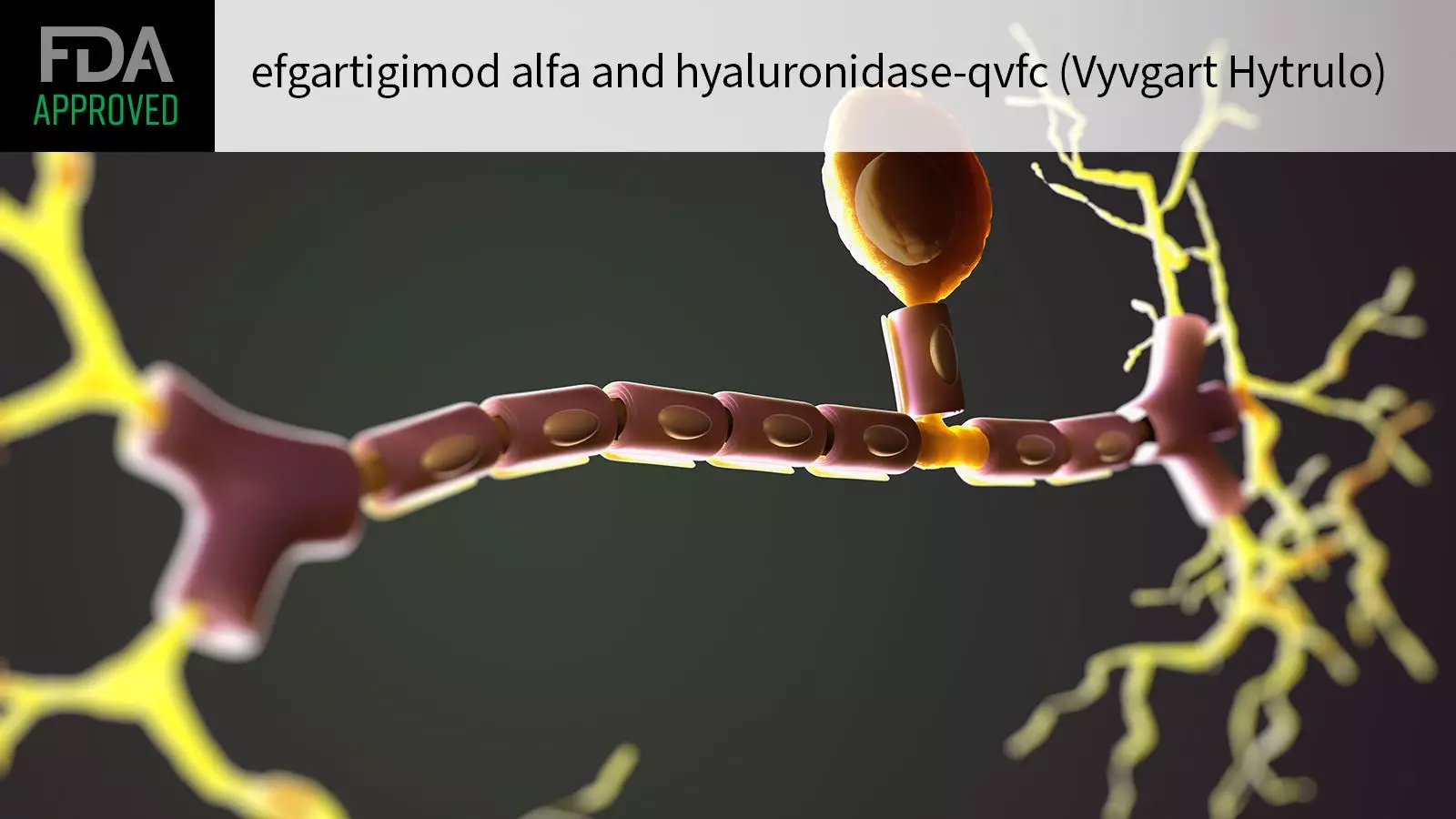Chronic Inflammatory Demyelinating Polyneuropathy (CIDP) is a rare and debilitating immune-mediated neuromuscular disorder of the peripheral nervous system. Patients suffering from CIDP have limited treatment options, usually consisting of corticosteroids and plasma-derived therapies. However, a new treatment option has emerged with the FDA’s recent decision to expand the indication of efgartigimod alfa and hyaluronidase-qvfc (Vyvgart Hytrulo) to include treatment for adults with CIDP. This development marks a significant milestone in the management of CIDP.
The efgartigimod-hyaluronidase combination offers a new, safe, and effective treatment option for CIDP patients. This treatment involves a weekly 30-to-90 second subcutaneous injection, making it a convenient option for patients. It is the first neonatal Fc receptor (FcRn) blocker approved for CIDP, working by reducing the pathogenic IgG autoantibody levels that play a role in CIDP. This approach differs from traditional treatments and offers a promising alternative for patients who may have difficulty with existing therapies.
The approval of the efgartigimod-hyaluronidase combination is expected to lessen the burden of treatment that CIDP patients experience. This groundbreaking treatment provides doctors and patients with a new tool to manage the disease effectively. It offers hope to patients by providing a treatment option that goes beyond just symptom management. The potential for reduced disease progression and improved outcomes is a significant advancement in the field of CIDP treatment.
The FDA based its decision on the results of the ADHERE trial, which involved 322 CIDP patients. The trial showed that a majority of patients experienced improvements with the efgartigimod-hyaluronidase combination, with a lower risk of relapse compared to placebo. The safety profile of the treatment was generally consistent with previous studies, with most adverse events being mild to moderate. Ongoing studies, such as the ADHERE+ study, will provide further insights into the long-term safety and efficacy of this treatment option.
The approval of the efgartigimod-hyaluronidase combination for the treatment of CIDP represents a significant milestone in the management of this rare disease. Patients now have access to a new, innovative treatment option that offers hope for improved outcomes and reduced disease progression. As research and clinical trials continue to explore the potential benefits of this treatment, the future looks promising for CIDP patients in need of effective therapies.

Leave a Reply